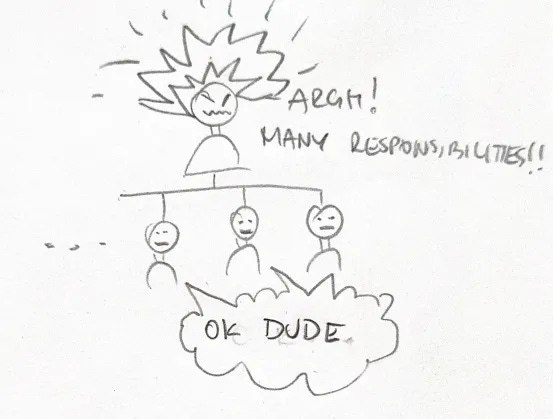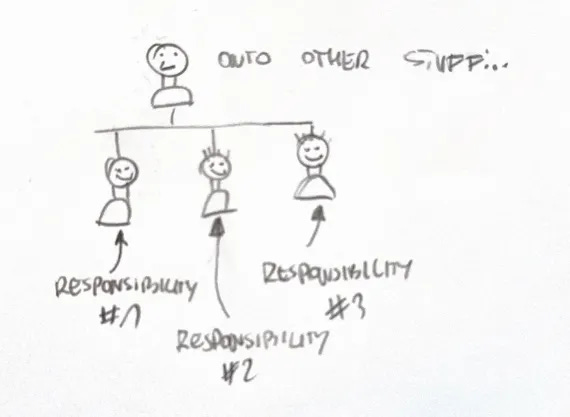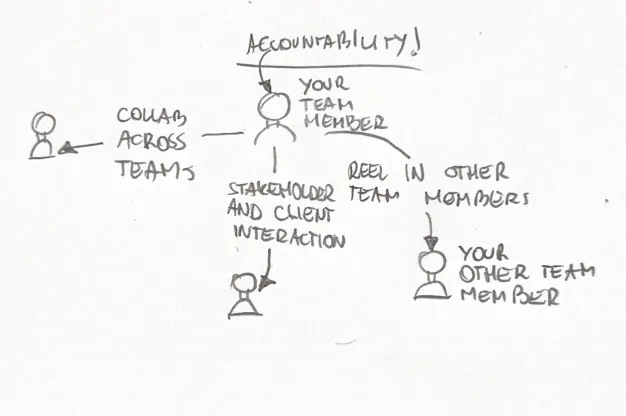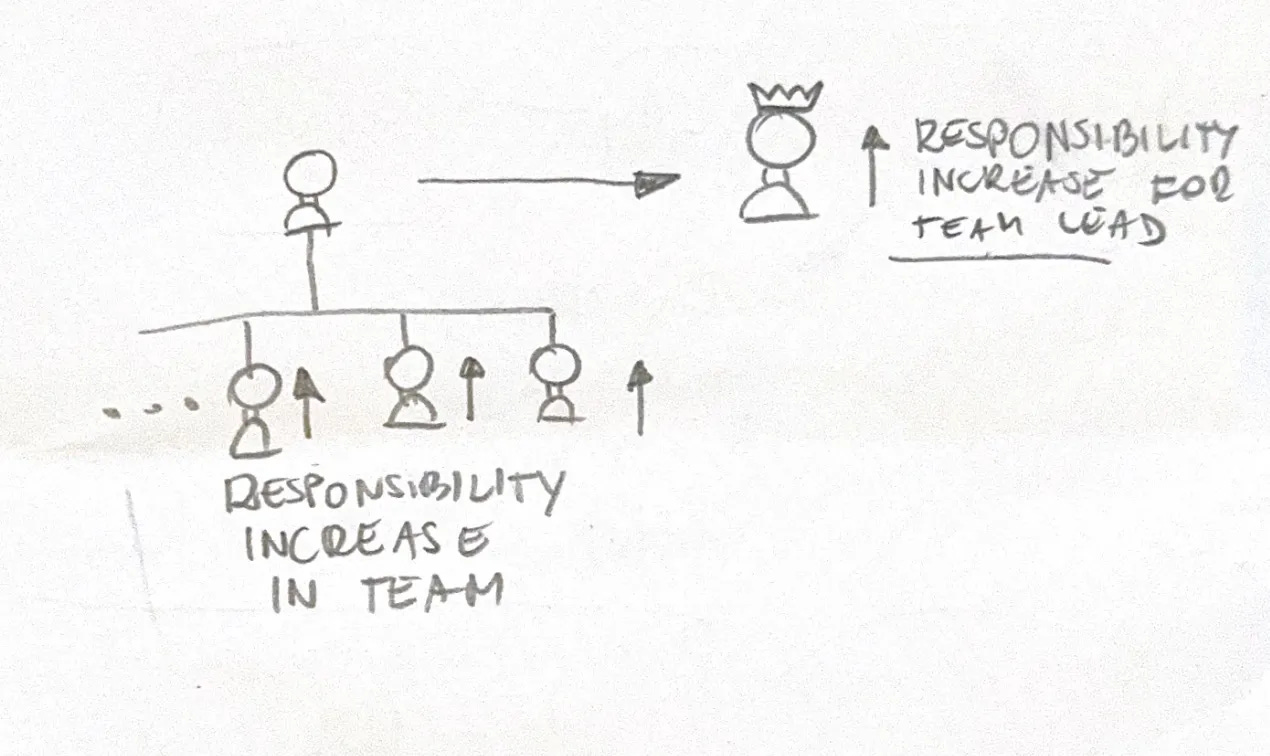Delegation is the seed of ownership
You’re probably thinking — what’s so difficult about delegating? Isn’t is simply about having someone to take care of a task instead of doing it yourself?
Yes, it’s that simple.
But one should not fall into the trap of thinking about delegating as an isolated element, but rather as a crucial building block of a high performing team.
How does effective delegation transpire into a team performance? Consider the following relationship between delegating, ownership and performance:
Delegation → Responsibility → Trust → Accountability → Ownership → High Performance
Read on to learn how delegation leads to high performance.
Before delegation: the overwhelmed leader
When you delegate, you give someone the chance to take responsibility for an outcome. If they succeed, they earn trust.
Moreover, it allows the leader to focus on the strategically relevant tasks and use the bandwidth in areas where the direct report currently lacks the insight or expertise.
Effective delegation is a challenge for leaders on all levels, not only among inexperienced people managers. Usually, incapability to effectively delegate manifests itself by the feeling of being overwhelmed by amount of “things to do”.
It’s detrimental to leadership capabilities, as when the inability to delegate persists in time, the team members grow indifferent to new challenges and even tend to refuse to take them on.
When this happens, the team gets stuck performing at an average level - people stop growing and the team’s ability to deliver good work plateaus or gets worse.
Delegation in action: responsibilities distributed
This can quickly change by delegation: the team lead doesn’t need to be focused so much on execution as architecting the distribution of responsibilities among team members.
By resorting to delegation, a minimum level of trust has to be placed in the capability of bringing the assignment home and ensuring that the direct report has free reins on the “how” - the boss decides merely on the “what”.
Accountability emerges: one individual orchestrates the broader outcome
There are distinct differences between responsibility and accountability:
Accountability is about ensuring that a broader assignment is completed. Responsibility is about completing a task within that broader assignment.
Imagine an event manager who organizes an investor dinner - they are accountable for running the event (venue, catering, program) but the catering specialist is responsible for putting the menu together.
Key difference: accountability is about ownership of the complete outcome, while responsibility is about executing specific tasks that contribute to that outcome.
The logical conclusion is that with an increase in responsibility comes more trust, and as trust grows more confidence can be placed in the individual to deliver larger assignments.
Eventually, one person can’t handle everything alone - they need help from others. This is the key moment when responsibility turns into accountability.
As more people get together to complete the assignment, represented by that accountable individual, she is the bearer of end-to-end ownership.
The payoff: shared growth
But here’s the best part: the team leader benefits too. When you delegate work, senior leaders start to trust you more, thanks to this simple outcome:
You trust your team and give them work → they complete it successfully.
This builds more trust, so you give them bigger responsibilities.
As ever larger responsibility morphs into accountability → the team naturally embraces ownership.
With ownership your team’s influence expands.
High performing teams efficiently find ways to expand its influence and positively affect the lives of others - other partner teams, the entire division or simply achieve increasing higher satisfaction levels among their customers.
Each time you hand over responsibility, you’re planting a seed of trust. With time, those seeds grow into ownership, accountability, and eventually → high performance.






